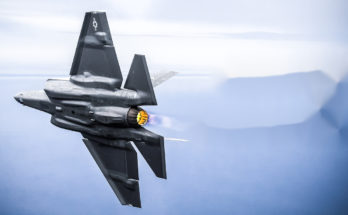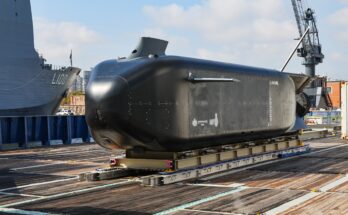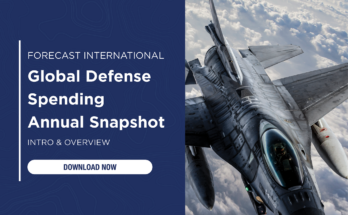by Derek Bisaccio, Military Markets Analyst, Forecast International.
Starting with the decision in the mid-1990s to relinquish its inherited nuclear arsenal, Kazakhstan has maneuvered itself on the international stage as a responsible global player. That decision, which saw Kazakhstan return Soviet nuclear weapons to Russia after the collapse of the Soviet Union, may have been made for a number of reasons, but Astana regularly points to it as an indicator of Kazakhstan being a positive international force.
Though this image projected abroad has been carefully managed by the government, possibly as a means to fend off questions about its domestic policies,[i] 25 years after independence Kazakhstan continues to seek an active role in solving global problems, ranging from armed conflicts to nuclear proliferation. As a number of contentious issues have cropped up over the past few years in the Middle East, Kazakhstan has offered to serve as a mediator and a meeting place for parties at odds with each other.
These efforts were most recently recognized on December 20, 2016, in a trilateral statement released by the foreign ministers of Iran, Russia, and Turkey regarding the conflict in Syria. The foreign ministers said in the statement that they “take note of the kind offer of the President of Kazakhstan to host relevant meetings in Astana.”[ii]
The three countries, all major players in the Syrian conflict, have agreed to meet in Astana to discuss restarting peace initiatives aimed at finding a political solution to the war, which has been ongoing since 2011. Though certainly sympathetic to the Syrian government, Kazakhstan is considered a neutral party in the Syrian conflict and has hosted opponents of Syrian President Bashar al-Assad for talks.[iii]
Kazakhstan has several interests in Syria beyond extending its diplomatic reach and honing its international image. Hundreds of Kazakh citizens have reportedly traveled abroad to fight for jihadist groups in Syria, prompting fears in Kazakhstan that they could return to conduct terror attacks domestically. The government named a Syrian imam (without specifying) who had called for global jihad as possibly connected to a spate of terror attacks that occurred in Aktobe in June 2016.[iv] Additionally, helping to achieve a peace agreement in Syria where ally Russia is engaged in direct military intervention could assist in strengthening relations between Astana and Moscow, in particular.
Alongside a recent meeting of the Collective Security Treaty Organization (CSTO) in St. Petersburg, Kazakh President Nursultan Nazarbayev confirmed his country’s willingness to hold fresh talks on the Syrian conflict. Sputnik International quoted President Nazarbayev as saying, “Kazakhstan is ready to host all parties for negotiations in Astana.” Regarding the talks, which will take place on January 23, President Nazarbayev noted, “They all agree; we will create all the conditions for them to work and meet.”[v]
Hosting talks that include Turkey and Russia is a major accomplishment for Kazakhstan, the culmination of its efforts to help the two countries repair their relations after Turkish warplanes shot down a Russian Su-24M2 over Syria in late 2015. Turkish Prime Minister Binali Yildirim specifically thanked Kazakhstan and Azerbaijan in June 2016 for their assistance in reconciling Ankara and Moscow after that incident.[vi]
The conflict in Syria is not the only Middle Eastern issue that Kazakhstan has waded into. In February 2013, Kazakhstan hosted talks between major world powers and Iran in Almaty regarding the Iranian nuclear program.[vii] Especially given Kazakhstan’s pride over relinquishing its nuclear weapons, as well as potential economic opportunity in Iran, the country was keenly interested in advancing the nuclear dialogue and remains supportive of the Joint Comprehensive Plan of Action, reached in July 2015, that seeks to resolve international concerns about Iran’s nuclear program while providing Tehran sanctions relief.
Israel, a strong economic partner of Kazakhstan, has turned to Astana for support on the international stage. Israeli Prime Minister Benjamin Netanyahu traveled to Astana in December 2016 to discuss bilateral cooperation in a range of fields. In addition, Prime Minister Netanyahu requested President Nazarbayev’s support for an Israeli bid for the United Nations Security Council, pointing out Israeli support in the past for Kazakhstan’s bid to join the international body.[viii]
The two leaders also discussed the topic of Iran. Israel and Iran are mutually suspicious of each other’s intentions throughout the region but, despite the fierce rivalry between the two countries, Kazakhstan has maintained friendly relations with both.
Kazakhstan’s efforts at mediation for global problems certainly stem from security and economic imperatives, but the Central Asian country is continuing to position itself as a meeting place and even a starting point for solving pressing issues. Turbulence in the Middle East has provided Astana with an avenue to advance its own interests while fostering stability, and the Kazakh government is likely to continue to promote its willingness to assist in solving global issues.
With China and Russia increasingly competing for influence in Central Asia and potential security concerns in the region receiving more attention, Astana’s commitment to its role as a neutral negotiator may soon be put to the test closer to home.
The Forecast International International Military Markets series examines the military capabilities, equipment requirements, and force structures inventories of 140 countries, with corresponding coverage of the political and economic trends shaping the defense market outlook for individual countries and regions.
[i] Casey Michel, “What’s Behind the Influx of Glittering Kazakhstan Op-Eds?” The Diplomat, December 16, 2016. http://thediplomat.com/2016/12/whats-behind-the-influx-of-glittering-kazakhstan-op-eds/
[ii] Russian Ministry of Foreign Affairs, “Joint Statement by the Foreign Ministers of the Islamic Republic of Iran, the Russian Federation and the Republic of Turkey on agreed steps to revitalize the political process to end the Syrian conflict,” December 20, 2016. http://www.mid.ru/foreign_policy/news/-/asset_publisher/cKNonkJE02Bw/content/id/2573489?p_p_id=101_INSTANCE_cKNonkJE02Bw&_101_INSTANCE_cKNonkJE02Bw_languageId=en_GB
[iii] RT, “Fractured Syrian opposition meets in Kazakhstan,” May 27, 2015. http://www.rt.com/news/262285-syrian-opposition-astana-talks/
[iv] RFE/RL, “Kazakh Minister Says Possible Syria Link in Aqtobe Attacks,” June 14, 2016. http://www.rferl.org/a/kazakhstan-imam-syria-deadly-attacks/27797100.html
[v] Sputnik International, “Kazakhstan Ready to Host Russia-Turkey-Iran Talks on Syria – President,” December 26, 2016. http://sputniknews.com/world/201612261049003610-Kazakhstan-russia-turkey-iran-talks/
[vi] Kazinform, “Turkish PM thankful to Kazakhstan for assistance in normalization of relations with Russia,” June 28, 2016. http://www.inform.kz/en/turkish-pm-thankful-to-kazakhstan-for-assistance-in-normalization-of-relations-with-russia_a2919420
[vii] BBC News, “Iran nuclear crisis: ‘Useful’ talks in Kazakhstan,” February 26, 2013. http://www.bbc.com/news/world-middle-east-21572075
[viii] Yossi Melman and Herb Keinon, “Netanyahu in Kazakhstan seeks help in winning Israel spot on UN Security Council,” The Jerusalem Post, December 14, 2016. http://www.jpost.com/Israel-News/Politics-And-Diplomacy/Kazakhstan-asks-Netanyahu-for-help-in-war-on-terror-475341
For 50 years, Forecast International intelligence reports have been the aerospace and defense industry standard for accurate research, analysis, and projections. Our experienced analysts compile, evaluate, and present accurate data for decision makers. FI's market research reports offer concise analysis of individual programs and identify market opportunities. Each report includes a program overview, detailed statistics, recent developments and a competitive analysis, culminating in production forecasts spanning 10 or 15 years. Let our market intelligence reports be a key part of reducing uncertainties and mastering your specific market and its growth potential. Find out more at www.forecastinternational.com




